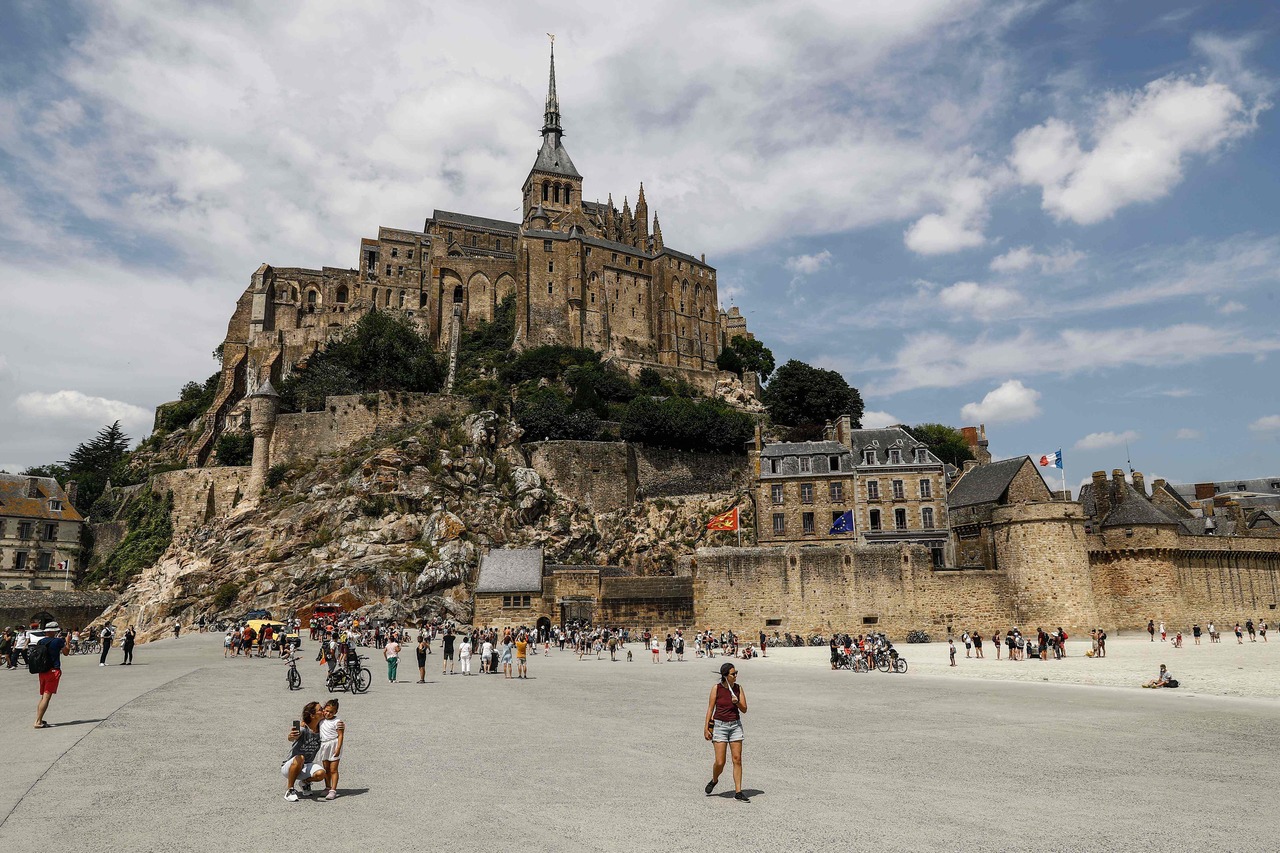Europe's tourism industry battered by Covid-19 and confusion
Sign up now: Get ST's newsletters delivered to your inbox

Tourism industry leaders fear that the current trend towards relaxing travel curbs remains both tenuous and easily reversible.
PHOTO: AFP
LONDON - The British government plans to lift, as early as next week, quarantine requirements on visitors from the European Union and the United States, provided they have been fully vaccinated.
The move was welcomed by Europe's ailing tourism industry, for it comes just at the time of the peak tourism season on the continent.
But tourism industry leaders fear that the current trend towards relaxing travel restrictions remains both tenuous and easily reversible.
And despite an anticipated boost in tourism figures in August, fresh virus outbreaks and persistent confusion over travel rules are combining to inflict another disastrous season for one of Europe's key economic sectors.
International tourist arrivals to Europe were down by around 70 per cent last year, according to data collected by the United Nations' World Tourism Organisation.
Renewed European lockdowns in response to spiking infection rates at the start of this year depressed the sector even further. Foreign tourist arrivals plunged by around 85 per cent in the first half of this year, compared with similar previous periods.
With uncertainties affecting arrivals from China, Japan and the United States, leaders of Europe's tourism industry knew that any recovery this summer was bound to be modest.
Still, they pinned their hopes on a rebound in the continent's own domestic tourism potential, and on the fact that Europe's border controls were relaxed in early June, so there were opportunities for a build-up in business during the European summer months.
"In 2019, there were 10 million people over the summer," said Ms Corinne Menegaux, who heads the Paris tourism office. "In 2020, we welcomed two million and this year we expect between four and five million."
Ms Menegaux expressed cautious optimism that the French capital would see a substantial business rebound this year.
However, this looks increasingly unlikely.
To start with, coronavirus infection rates have been rising steadily, and particularly in key European tourism destinations such as France or Spain.
But what really wreaked havoc with Europe's tourism industry was the confused nature of travel regulations imposed by individual countries.
With little advance warning and even less by way of an explanation, the British government announced recently that travellers coming from France would still have to self-isolate for up to 10 days, a decision which angered the French government, since it wiped out a serious source of French tourism based on no solid scientific evidence.
The British authorities also played fast and loose with regulations applying to Spain by removing some Spanish vacation islands from Britain's safe destinations list, a serious blow for Spain, where the tourism industry accounts for around 13 per cent of the national economy, with the British providing a significant slice of this market.
And other countries did the same. The Netherlands, for instance, first opened to tourism a month ago, then went into semi-lockdown and now is promising to relax its travel regulations again.
A "traffic light" colour coding system was introduced by most European countries to help travellers understand which countries can be visited and with what risk.
Yet instead of making travel more predictable, the speed by which countries were moved from "green" to "amber" status coupled with fuzzy government explanations about what these colours mean only increased confusion among travellers and the tourism industry alike.

<p>Tower Bridge can be seen as people walk along the River Thames, amid the coronavirus disease (COVID-19) pandemic in London, Britain, July 27, 2021. REUTERS/Henry Nicholls</p>
PHOTO: X06612
In Britain, for instance, Portugal was first included in the green list of Covid-safe destinations to which travel was allowed with no quarantine restrictions.
But then, Portugal dropped out within a month, resulting in mass cancellations of tourism bookings.
"The recovery has failed," said Mr Raul Martins, president of the Hotel Association of Portugal. According to him, there will be "zero increase" in Portugal's tourism business this year, "in the best case".
And then, there is confusion about what the traffic-light classifications mean. Currently, those coming to Britain from France - an amber-list country according to the British classification - are required to quarantine, even though other countries on the same amber list face no such requirements.
The confusion is so profound that most European politicians no longer even bother to justify it.
And despite protests over the haphazard nature of travel advice offered by other countries, France is guilty of the same unpredictable behaviour.
The sudden introduction of a requirement that tourists already in the country must obtain a Covid-19 pass when visiting important sites and museums has resulted in confusion and long queues at popular tourism destinations.
And Italy - another key European tourism market - appears to be following the same trend by promising to introduce its own "passport" system for tourists visiting its sites.
To ease EU travel, European Union lawmakers approved a digital Covid-19 certificate that has been rolled out across the entire bloc. And that, together with the travel relaxations announced by the British, should now give European tourism a boost.
But for each step forward, there is a setback. Speculation is rife in London that the British government may soon put Greece on the restricted travel list, destroying the travel plans of millions of would-be tourists.


